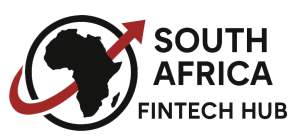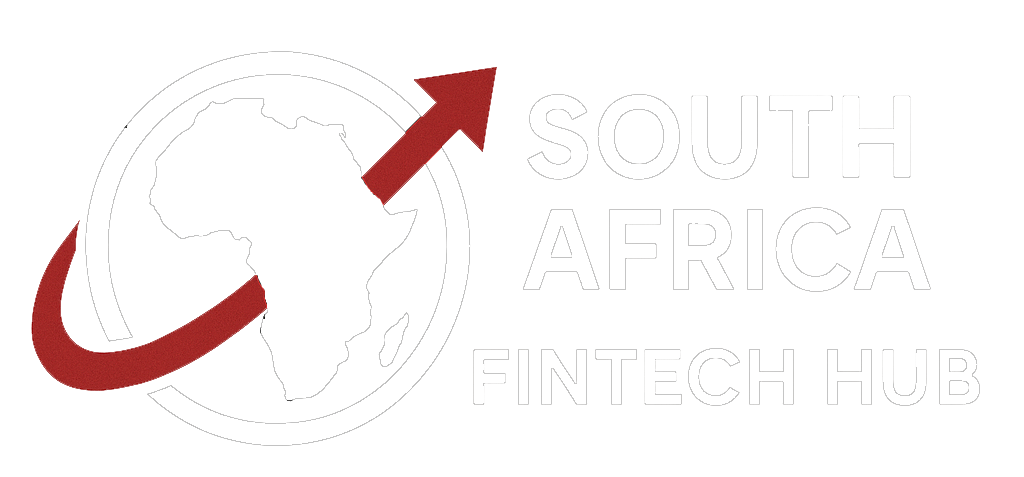FAQ
Find Out Answers Here
The Impact of Digital Transformation on South Africa’s Financial Services
Digital transformation is fundamentally changing South Africa’s financial sector by improving customer experience, operational efficiency, and financial inclusion. It involves technologies like AI, cloud computing, mobile banking, automation, and blockchain, reshaping how financial services are delivered.
Why It Matters in South Africa:
• The country has a mix of established banks, growing fintechs, and many unbanked or underbanked people, especially in rural areas.
• Digital tools can extend financial access to these underserved populations.
• Leading banks and neobanks are adopting digital services, though many still face challenges like outdated systems and cultural resistance.
Benefits:
• Reduced operational costs.
• Enhanced customer experience with faster, smarter services.
• Broader reach into remote areas.
• Better decision-making via data analytics.
Challenges:
• Legacy systems and cybersecurity risks.
• Need for skilled digital talent.
• Regulatory hurdles, especially around privacy laws (e.g., POPIA).
• Cultural shifts needed within traditional institutions.
Role of Fintechs:
• Agile fintech startups offer innovative, customer-centric solutions.
• Partnerships between banks and fintechs are helping modernize services.
Financial Inclusion:
• Digital services enable previously unbanked people to access credit, savings, and financial security, improving lives especially in rural and informal sectors.
Regulation and Innovation:
• Regulators encourage innovation through sandboxes but must balance it with consumer protection.
Looking Ahead:
• Growth in AI-driven services, embedded finance, blockchain, and sustainability-focused innovation.
• Success depends on leadership, new mindsets, and strategic partnerships.
Conclusion:
Digital transformation is an ongoing journey in South Africa’s financial sector with great potential to create a more inclusive, efficient, and innovative financial future
Financial Sector Conduct Authority (FSCA)
• The FSCA is South Africa’s financial regulator since 2018, overseeing financial institutions’ conduct.
• Its goal is to ensure a fair, efficient, and resilient financial system that supports inclusive and sustainable growth.
Why Establish an FSP in South Africa?
• Access to a sophisticated financial market with strong infrastructure and liquidity.
• Credibility from a well-regulated environment attracting local and international clients.
• Favorable tax treaties and incentives for foreign investors.
• Skilled workforce and efficient company incorporation.
• Convenient time zone bridging Europe and Asia.
Types of FSP Categories & Features:
• Category I: Financial advisory and intermediary services (non-discretionary advice).
• Category II: Discretionary portfolio management.
• Category IIA: Discretionary hedge fund intermediary services.
• Category III: Administrative services managing client funds/assets.
• Category IV: Assistance business related to claims on financial products.
All categories require:
• A local Key Individual
• A Compliance Officer
• Meeting minimum capital requirements (assets > liabilities)
Application and Licensing Process:
• Application fees and annual renewal fees vary by license category.
• Typical application timeline is 3 to 6 months, depending on documentation quality and business plan clarity.
SALVUS Support:
• SALVUS provides project-managed licensing assistance for FSP applications, including documentation preparation and resource allocation support
Introduction:
• South Africa’s fintech sector is rapidly expanding, driven by financial inclusion, lower costs, improved service quality, and addressing gaps in money management like Forex, remittance, payroll, and insurance.
Financial Service Provider (FSP) Categories:
• The South African FSP regime covers a wide range of financial instruments and services including insurance, deposits, shares, derivatives, forex, funds, crypto assets, and more.
• Fintech services typically include virtual bank accounts, e- allets, crypto and forex trading, remittance, credit issuance, loans, and payment systems.
Global Context:
• Post-COVID, fintech growth has surged globally, with major fintech hubs like the USA, Canada, Singapore, UK, Australia, and Dubai registering tens of thousands of fintech entities.
• South Africa has over 30,000 active companies in financial services, with about a third involved in fintech, including a growing influx of foreign firms leveraging South African regulation.
Regulatory and Services Arbitrage:
• Many global fintech companies operate across multiple jurisdictions to navigate varying licensing and capital requirements.
• South African FSPs provide opportunities to hold custody and offer services more flexibly and cost-effectively than stricter jurisdictions like Germany or the UK.
• “Services arbitrage” allows South African fintechs to utilize licenses from countries like Canada or New Zealand to offer services otherwise restricted locally.
Challenges & Failures:
• High failure rates: 50% of fintechs fail in their first year; 80% within two years due to capital shortages, regulatory hurdles, mismanagement, technology and security issues.
Keys to Success:
• Reliable service access, long-term contracts, strict segregation of client funds, robust accounting and compliance, and strong governance are critical.
• Support from finance teams for capital raising and managing multiple jurisdictions is essential. The Fintech Hub (70 Melville Road, Illovo Central):
• A pioneering South African fintech support center providing connections, accounting, compliance oversight, and multi-jurisdictional operational support.
• Offers shared compliance reviews, bookkeeping, and accountability to prevent mismanagement.
• Supports the creation and expansion of FSPs locally and internationally (including US, Canada, UK, Australia, Singapore, and various African countries).
• Provides office space, banking access, tech services, and networking opportunities.
Key Individuals (KI) Matrix:
• The hub maintains a database of Key Individuals categorized by their qualifications.
• Supports development and appointment of KIs, including supervision for category upgrades.
• Facilitates the sale and upgrading of dormant FSPs to generate income and maintain active regulatory status.
Services Available Through the Hub:
• Access to global banking, multi-currency accounts, crypto and banking software.
• Incorporation support for multiple jurisdictions.
• Accounting, compliance, insurance, crypto trading partnerships.
• Office infrastructure with amenities, capital raising advisory, and legal support
A Financial Services Provider (FSP) license in South Africa, regulated by the Financial Sector Conduct
Authority (FSCA), offers numerous advantages to both consumers and the economy, particularly for
those involved in forex trading.
Benefits for Consumers:
• Protection & Oversight: Registered FSPs are regulated, audited, and held accountable, reducing fraud and misconduct.
• Access: Wide range of financial products and services are made available.
• Education: FSPs promote financial literacy and informed decision-making.
• Legal Recourse: Consumers can take action against misconduct.
• Transparency: Clear, accurate product information is mandated.
Benefits for the Economy:
• Inclusion: Helps bring previously excluded individuals and businesses into the formal financial system.
• Growth: Encourages entrepreneurship via access to credit and capital.
• Jobs: A strong FSP sector creates employment.
• Stability: A sophisticated and regulated sector fosters investor confidence.
• Robust Regulation: A solid framework ensures long-term financial health.
Advantages of an FSCA FSP License (with a focus on Forex):
• Credibility: Validates the trustworthiness and professionalism of the provider.
• Market Access: Enables wider reach to clients, from retail to institutional.
• Compliance: Encourages strong governance, AML/KYC practices, and continuous oversight.
• Consumer Protection: Ensures fair treatment, indemnity cover, and a complaints process.
• Growth Opportunities: Facilitates innovation, partnerships, and market expansion.
Conclusion:
Holding an FSCA FSP license strengthens a provider’s market position, fosters trust, and supports ethical and transparent operations. It is a key enabler for sustainable growth in South Africa’s financial and forex
sectors.
A Key Individual (KI) is a legally required role in every licensed Financial Services Provider (FSP) in South Africa, as mandated by the Financial Sector Conduct Authority (FSCA). The KI ensures regulatory compliance, ethical conduct, and effective risk management within an FSP. Core Responsibilities of a Key Individual:
1. Regulatory Compliance – Ensures adherence to FSCA regulations, licensing requirements, and reporting duties.
2. Risk Management – Identifies, assesses, and mitigates financial and operational risks.
3. Leadership & Supervision – Oversees representatives, guides staff and aligns business operations with legal obligations.
4. Ethical Governance – Promotes transparency, fairness, and trust in financial dealings.
Why Businesses Need a Key Individual:
• Legal Requirement under the FAIS Act.
• Enhances Credibility and stakeholder trust.
• Reduces Legal Risk and ensures business continuity.
How to Find the Right KI:
1. Define your business needs.
2. Ensure candidates meet FSCA “fit and proper” standards (education, exams, experience).
3. Use professional networks, agencies, or platforms.
4. Vet candidates thoroughly and register with the FSCA.
Challenges:
• Limited pool of qualified professionals.
• High costs of recruitment.
• Continuous regulatory changes demand ongoing training.
Conclusion:
Appointing the right Key Individual is crucial for legal compliance and long-term business success. Outsourcing or expert guidance—like that offered by The SA Fintech Hub —can help businesses simplify the process and secure the right talent.

